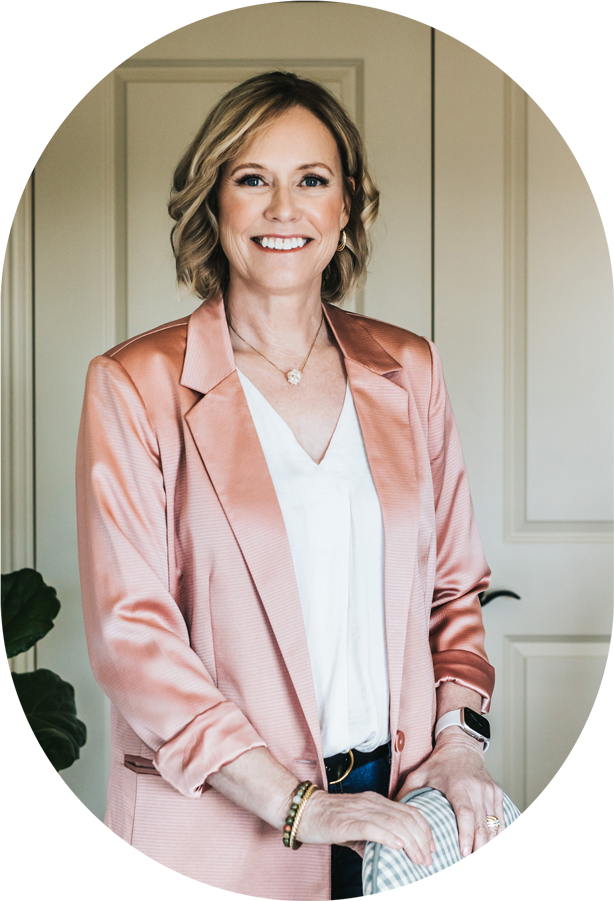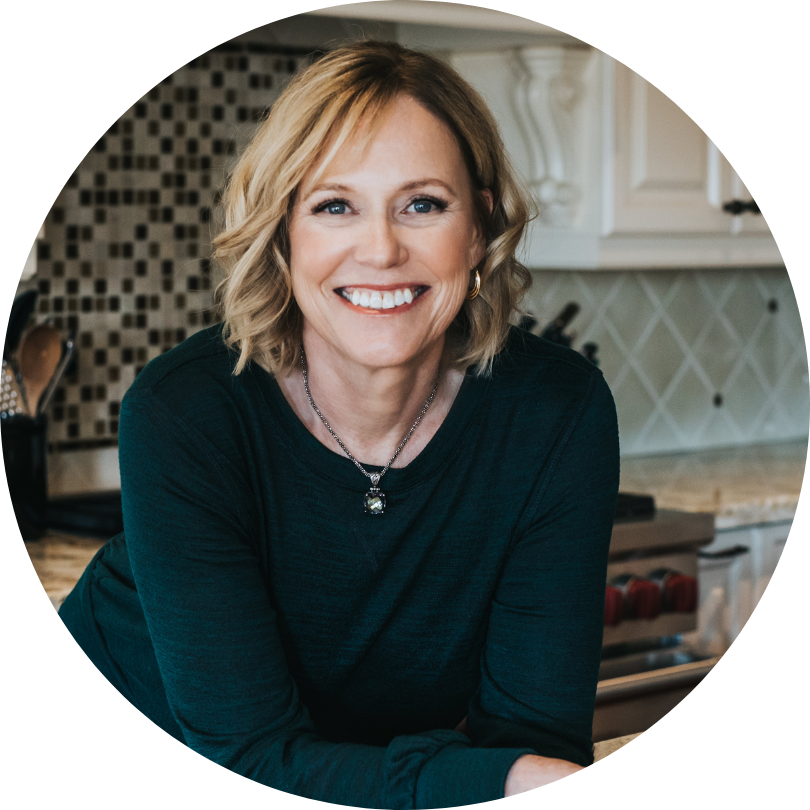Private Mindfulness Coaching
Grow Yourself Through Mindfulness
Calm your body. Understand your patterns. Express who you truly are.
You sense there’s something deeper beneath the stress, confusion, exhaustion, or quiet dissatisfaction you’ve been feeling. Not something “wrong” with you, but something asking for attention and wanting to grow in you.
Private mindfulness coaching enriched with the wisdom of the Enneagram is more than stress management. It’s a structured, supportive process that gives you the tools to regulate your nervous system, understand your inner patterns, and grow the relationship you have with the most important person in your life – yourself.
Over three months, we work together one-on-one to build your inner capacity, empowering you to grow into a new way of being where calm feels possible, clarity feels steady, and your choices begin to reflect who you truly are.
Private coaching is available in person in Calgary or online worldwide.
Is Mindfulness Coaching Right For You?
YOU DON’T ALWAYS FEEL LIKE YOURSELF
At times, you feel reactive, overwhelmed, or unsure of who you really are beneath the roles and expectations.
YOU LONG TO FEEL STEADY AND CLEAR
Not perfect, just grounded enough to trust your emotions, your voice, and your decisions.
YOU’RE TIRED OF INSIGHT WITHOUT CHANGE
You’ve read, reflected, maybe even tried therapy, but you want structure and tools that integrate, not just ideas to understand.
YOU WANT TO TRUST YOURSELF AGAIN
To feel calm in your body, honest in your relationships, and confident in your direction.
YOU’RE READY TO GROW, NOT JUST COPE
You sense that what you need isn’t fixing. It’s growing and evolving your relationship with yourself.

When You Choose Private Mindfulness Coaching
With personalized mindfulness coaching, you’ll leave with more than new meditation and mindfulness practices; you’ll leave with a whole new way of being.
One where feeling disconnected from yourself no longer define your days, you have more control over your nervous system regulation, and you trust your own inner wisdom.
What becomes possible:
Go from “I’m too tired, I don’t have the energy” to feeling light, free, and energized.
Transform inner stress and emotional reactivity into calm and clarity.
Replace “I don’t know what I want” with confident clarity about your desires and boundaries.
Move from self-doubt to living authentically and unapologetically.
Break free from old patterns that keep you stuck and disconnected from yourself and others.
Establish grounded practices that build resilience and vitality.
Shift from feeling off-track to living in alignment — calm, clear, and deeply connected.

What Makes My Mindfulness Coaching Unique
Whether you’re feeling off, disconnected, or unsure why you’re not thriving, I help you get to the root of the struggle, gently and clearly. With a calm, compassionate presence, I create a safe, structured space where you’re deeply seen, and where your own inner clarity can begin to emerge.
Together, we walk a path that’s designed for your growth, not a one-size-fits-all solution.
Mindfulness coaching is more than mindset or symptom management — it’s an integrative journey that honors your mind, body, heart, and soul.
Drawing on modern psychology, ancient wisdom, nervous system science, and spiritual insight, I help you reconnect with the deeper essence of who you are.
Using personalized meditation, mindfulness, the Enneagram, and a structured coaching journey, we uncover not just why you’re stuck, but who you’re becoming.
Insight alone isn’t enough. Real transformation happens when you have the right tools — and the support to apply them. From nervous system regulation and embodied practices to Enneagram self-awareness and inner wisdom cultivation, I guide you to build a toolkit that strengthens resilience, trust in your voice, and connection to your purpose.
One-on-one coaching is grounded in the Four Keys to Inner Peace framework and fuelled by the belief that you already hold the potential for wholeness — you simply need the right conditions to emerge into it.
What Clients Are Saying
I was very unhappy and knew something was not right even though I felt thankful for many things in my life. Working with Bev was an unbelievable experience. I learnt so much about myself. The most important thing people should know is that besides being caring and so open to talk to…Bev helps you to unravel and truly find yourself. This experience changed my life. We often do not want to face what is bothering us- but our hearts know. If you feel and know something is not right in your life working with Bev will open your life to who you are truly meant to be.
I had gone through a personal development journey and had hit a wall. My life was great on the outside, but I was broken on the inside. I needed someone to help me through the self-discovery journey and understand what I was missing. Bev helped me connect with myself through her meditation guidance. The Enneagram work has helped me connect some dots, in regard to myself and what I have been doing in my life to add to the suffering. I potentially never would have managed this alone. I have become more conscious of my authenticity in dealing with others (and myself), and this has become one of my values to live by.
I had recently separated from my husband and was struggling with my new identity and who I was without him. I was dealing with the uncertainty of this difficult situation and how to find peace and contentment in spite of the challenges I was facing. The concepts and tools I received in mindfulness coaching really aligned with what I believe to be true about healing. I have done talk therapy many times and it has not been a catalyst for transformation like this coaching was. I feel it creates changes at an energy level and has long-lasting effects that really address root issues.
Firstly, with meditation, I noticed an instant sense of calm, peace, and positivity. Within no time I noticed myself caring about me again; what I said, what I did, who I hung out with, what I ate, what I drank. I was harboring a lot of expectations, judgements, anger, resentment, and just plain hurt. As we went through the different sessions, and I completed my assignments, I started to come to peace with relationships, how they were without trying to control them. Many of my relationships are stronger now, most of all the one with myself.
Soon after meeting with Bev and starting my meditation practice, I began to feel calmer, less anxious and better equipped to express myself during uncomfortable and potentially confrontational situations. Bev provided me with the tools that allowed me to recognize when I was stress eating or even before I got to it. She taught me about self-compassion and I started to realize just how hard I was on myself. I also learned how to discuss things with my husband on a more mature level. I just feel SO MUCH BETTER.
I had been in and out of psychotherapy for many years. And the pathologizing approach of searching for what was wrong with me and trying to find the ever-elusive answers just was not working. Bev’s capacity to truly see me and then offer new paradigms for me to see myself allowed me to let go of a lot of shame and fear that I have been carrying within me for most of my life. This allowed me to embrace my dreams and develop a growth-oriented and forward-thinking mentality towards my life.
What’s Included With Mindfulness Coaching?
ONE-ON-ONE COACHING
Eight hours of personalized meditation and mindfulness coaching delivered over three months. Together, we’ll map your unique path to living a vibrant, connected and meaningful life.
TOOLS AND RESOURCES
Receive practical, personality-tailored tools including meditation and mindfulness practices that support your journey. These resources will help you stay grounded in your authentic self as you navigate daily life.
ENNEAGRAM INFUSED WISDOM
Gain deep insights through an Enneagram assessment and expert guidance. Illuminate the patterns that hold you back, rediscover your true nature, and chart a path toward meaningful self-expression.
WEEKLY REFLECTION TEMPLATE
Thoughtfully designed prompts to help you pause, integrate insights, and stay accountable as you track your progress and growth throughout the program.
UNLIMITED EMAIL SUPPORT
Ongoing, compassionate support from a mindfulness teacher who has walked this path. Receive encouragement and clarity when you need it most.
WELCOME PACKAGE
A curated collection of tools and inspiration to support and empower your journey of self-discovery.
Frequently Asked Questions
Unlike traditional coaching, which focuses primarily on goals and action steps, mindfulness coaching helps you develop a deeper connection with your true self. Through meditation, mindfulness practices, and the Enneagram, you’ll learn to transform inner confusion into clarity and create lasting change from the inside out.
This mindfulness coaching program is based on the 4 Keys to Inner Peace Framework – a holistic path that blends science and soul, providing individuals who feel lost or disconnected with the tools to rediscover vitality, connection, and purpose. You can learn more about it HERE.
While therapy often focuses on healing past wounds and managing symptoms, mindfulness coaching guides you on a journey of self-discovery and transformation. We focus on helping you reconnect with your true self, develop practical tools for inner peace, and create a life that feels authentically aligned. Many clients find mindfulness coaching complements their therapy work.
The Enneagram offers profound insights into your patterns, motivations, and path to growth. When combined with mindfulness and meditation, it helps you understand yourself more deeply and provides specific guidance for your unique journey of transformation. This integration creates a comprehensive approach to reconnecting with your true self.
Mindfulness coaching is ideal for people ready to explore beneath the surface and commit to their inner growth. However, if you’re currently experiencing severe depression, anxiety, or other mental health challenges, it’s important to work with a mental health professional first or alongside our work together.
Your journey begins with a 2-hour launch session where we’ll create your personalized path forward. Through eight hours of one-on-one coaching, you’ll receive guidance tailored to your unique needs. You’ll develop a meditation practice, gain Enneagram insights, and learn practical tools for transformation. Weekly reflection templates and unlimited email support ensure you feel supported every step of the way.
This signature coaching program is an investment of $1,675 Canadian. Payment plans are available to support your commitment to transformation. The investment reflects both the depth of personal guidance you’ll receive and the lasting value of the practical tools and insights you’ll gain.
Ready to begin? Book a discovery call to learn more about whether this program is right for you.

